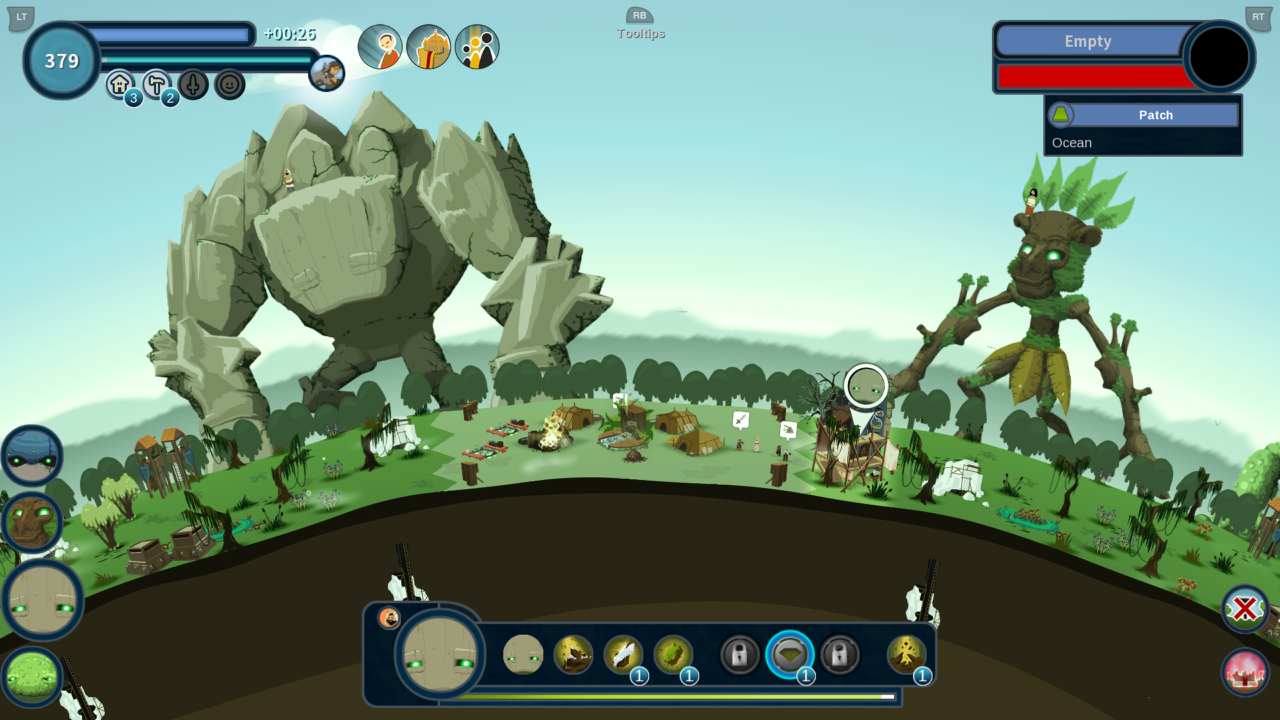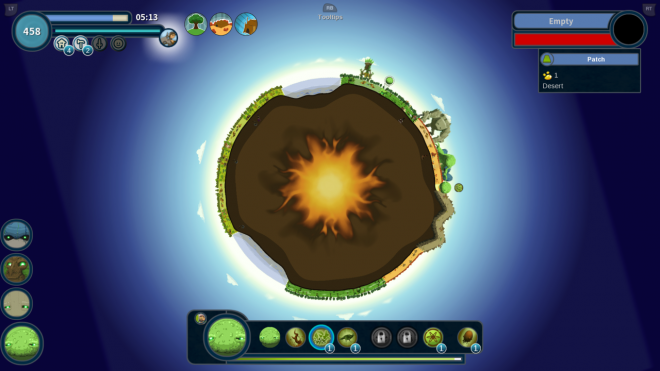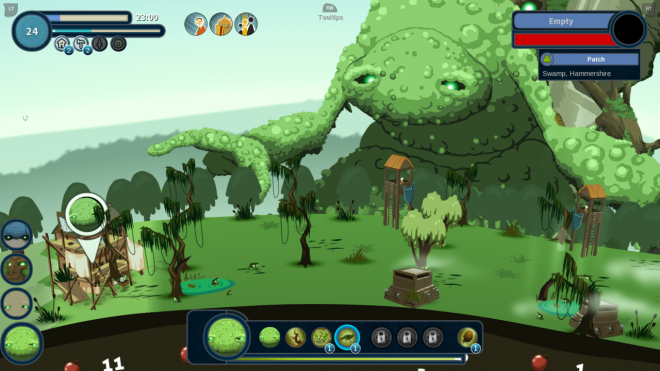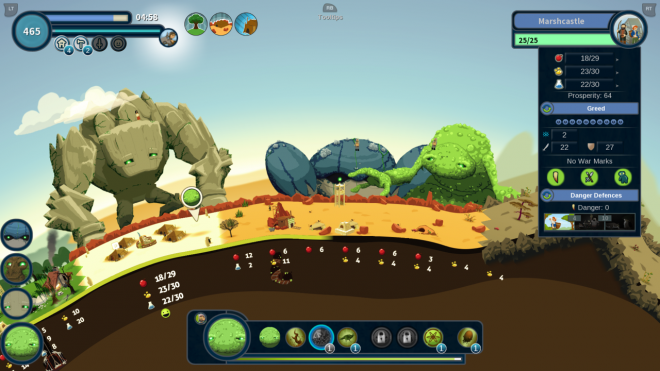Nothing covers up dark themes better than cute aesthetics. Just look at Reus, it’s so cartoonish and charming. You command nature-based giants with outlandish proportions and occasionally have tiny people riding on their head – how adorable. It’s easy to forget this is a god game where the fate of an entire planet rests solely on your decisions. You control the balance of human society in their endless life-or-death struggle, but at least the world’s bright colors will ease the stress and tedium of being all-powerful.
Here’s what I liked:
Gigantomachy – Reus puts a clever spin on the God game. You control four giants, each representing a biome and must reinvigorate a dead planet so it can sustain life. You have no control over the planet’s human inhabitants, and therefore must control the world around them to keep their society from dying. You can create sources of food, wealth and technology which they will use as they see fit. It’s important to keep an eye on their needs. If you’re not helpful enough they’ll never flourish, but if you’re too good to them they may bite the hand that feeds them. There’s a lot to keep track of, but having the duties split up between four characters makes balancing the world’s affairs a manageable task.
Statistics – While the game appears cheerful and calm, there’s a lot of complexity under the hood. The planet only has a set amount of land, which you need to optimize the best you can. What you place where matters: healthy land can only exist within a certain range of water and villages can only get resources within a certain range. Resources (plants, animals, minerals and herbs) have the most complex relationships. While all these resources start off as a generic type for whatever biome you place them, they can be given a variety of perks and can be mutated into new, potentially better resources. Placement of these resources matters too; everything has a “symbiosis”, which grants a special bonus if it’s placed near something specific. While a bit overwhelming, it’s a clever system that leads to a lot of experimentation.
Here’s what I didn’t like:
God of slumber – Reus is unbearably slow. Command a giant to do something, and it will take its sweet time moving to your marker. After they complete their task, you may have to wait through the ability’s slow recharge before they can do it again. You’ll first notice the sluggishness in the three-part tutorial; while it’s nice of the developer to put in an in-depth tutorial to explain the game’s complexities, it takes forever. Large amounts of text paired with the underlying gameplay is a recipe for boredom. The slowness isn’t always noticeable in the main game, as you’ll likely be doing multiple things at once, but when you’re waiting on one task to be complete it feels like an eternity.
Did I mention slow? – The game’s main mode, Era, is basically a survival mode in which you have 30 minutes to do your best in sustaining the planet. At the end of the game, you unlock achievement-like developments if you manage to do anything from a long list of potential goals. Complete enough developments and you unlock new items or new modes which up the game time to 60 or 120 minutes. Unfortunately playing longer doesn’t add all that much to the game; aside from being able to reach farther-off development goals it still feels exactly the same. By the time you unlock the 60-minute mode the game already feels tedious. Every new game is the same: build your world, plant some plants, add some animals and watch the villages grow. It’s a tiresome rinse-and-repeat formula that lacks any interesting end-game content.
A planet like any other – While you may functionally be a god, you never get to be hugely creative with that power. You can create one of the four environments wherever you want on the face of the planet and… that’s it, really. The people decide where the villages are and what projects they do. You add plants and animals, although they’re much more about functionality than decoration. Every play through feels the same, as you always start with the exact same empty planet. Since you don’t have a lot of variety in how you rebuild this planet, the game feels more like placing chess pieces than creating a flourishing world.
Wrap-up:
Reus tries to simplify a complex genre, but loses what makes the genre interesting in the first place. While it gets the mathematics down pact, nothing about building a world feels all that grand or interesting. While you may be a gigantic god, you feel more like a lowly middle-manager between humans and nature. The game has some good ideas and interesting mechanics, but lacks the ability to make any of it feel meaningful.
Score: Limited Appeal
Reus was developed by Abbey Games and published on Xbox One by SEODESCO Publishing. It was released October 10, 2016 for $24.99. A copy was provided for review purposes.





